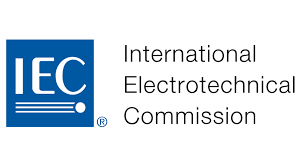

In the world of engineering and technical standards, one of the perennial challenges is determining how to best promote their acceptance and application in industry. Some standards seem to catch on and take off almost immediately, while others languish with little acceptance – or even understanding. What separates these two groups is a bit of a mystery. While awareness of some standards may be high, this does not automatically lead to adoption, which is the best measure of success. There are many possible reasons for a lack of broad adoption. Suppliers may not see a benefit to compliance with standards unless it results in increased sales. Asset owners are unlikely to make standards compliance a criterion in product selection unless they see business value in the capabilities provided. On the contrary, if standards compliance is seen as adding cost to the product then this can actually be an impediment to adoption.


Aside from market forces, some have suggested that limited access is an impediment to adoption and that this could be addressed by making standards “free” or available for download without purchase. This is perhaps an overly-simplistic analysis. The ubiquity of information on the Internet has conditioned us to expect that all information be freely available. For example, simply think of Wikipedia, social networks, and the challenges faced by the press and news organizations who have experimented with various forms of paywalls.
However, the reality is that all information is not – and probably should not – be provided at no cost. From a practical perspective, there must be a way to fund the creation and curation of content, including updates or subsequent editions as details change. This is particularly true in the case of detailed technical content typically found in industry standards. Even if the authors donate their experience and expertise there are still costs associated with preparation and delivery by standards development organizations (SDOs), many of which operate as non-profits with few other sources of income. Many SDOs are non-profits and have limited options for generating revenue to cover these costs. Some also provide supplementary information related to the standards, such as training or supporting publications. However, even in these cases, the sale of the standards themselves is part of the revenue equation.
Further, the term “standard” is often used in a very broad sense to include various types of guidance (e.g., NIST Special Publications) and de facto standards that may be asserted by major technology suppliers. This leads to the conclusion that if some of these documents freely available then all should be. ARC has written on the subject of standards, including providing a short tutorial on the purpose, meaning, and impact of the standards that apply to the engineering disciplines for automation professionals.
Finally, there is the question of the intended purpose of formal technical standards. These documents are often – by necessity – highly detailed and specific, intended to be used as reference sources for experts in the field to define what is considered common, proven, and accepted practice. They may not be intended for use by people not already well versed in the subject and in most cases do not provide simple and straightforward guidance but rather a structure set of principles and detailed requirements that may be used to construct and validate a solution for a specific set of circumstances. Practical and useful guidance more often comes in the form of case studies, presentations, and reports of what has worked for others.
In summary, increasing acceptance of the adoption of standards is not as simple as providing them for free. However, it is often possible to obtain copies through special requests, or simply by joining the responsible committee and working with close to final drafts.

